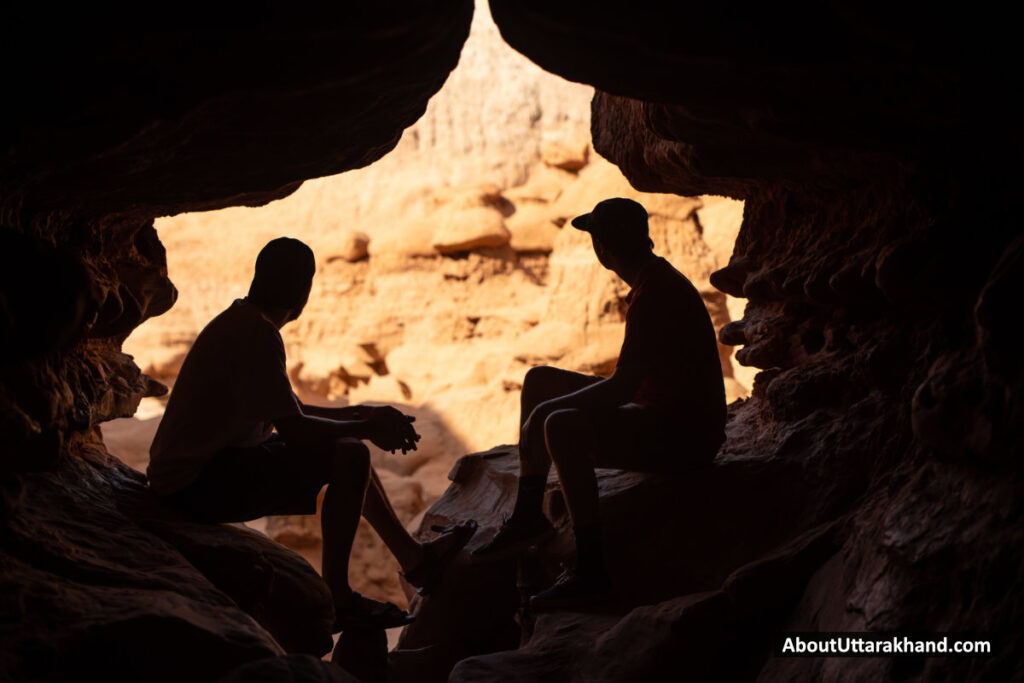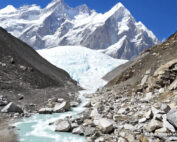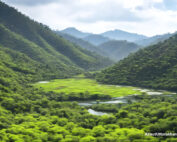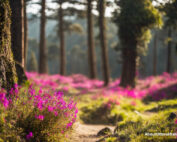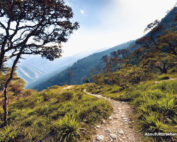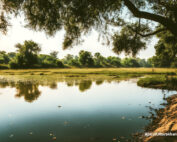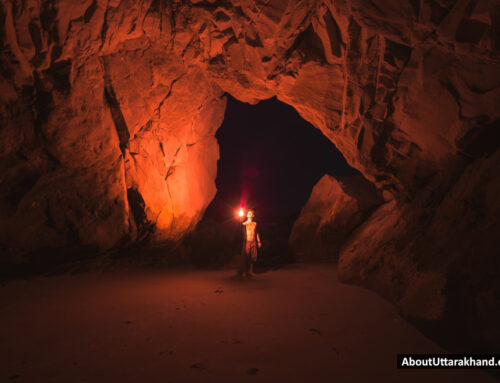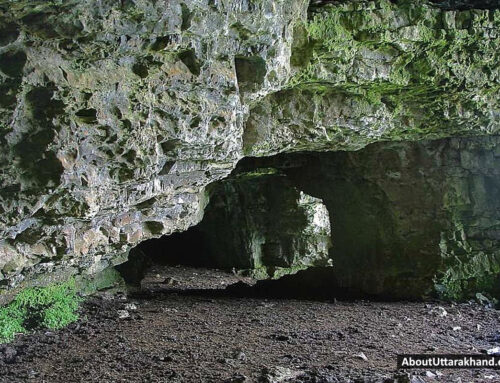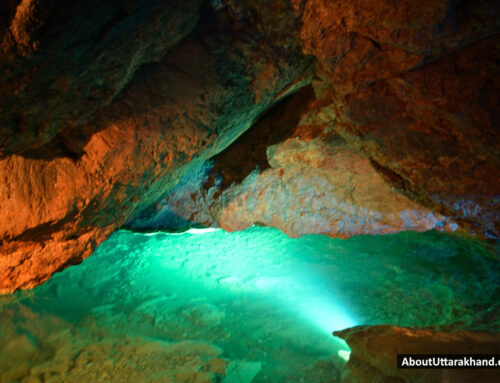Budher Cave
The remarkable Budher Cave, which can be found in the Dehradun District of Uttarakhand in India, is a living testimony to the marvellous interplay between the artistic prowess of nature's geological processes and the insatiable desire of humans to explore new territory. This amazing underground sanctuary is covered in awe-inspiring mystery, and it beckons explorers, spelunkers, and people who are interested in discovering hidden beauties.
In this all-encompassing guide, we will go on an expedition inside Budher Cave, where we will learn the mysteries of the cave's geological development, investigate the cave's historical significance, and immerse ourselves in the exciting experiences that the cave has in store for those who are brave enough to go exploring below the surface.
Table of Contents
Budher CaveDetails About Budher Cave
History Of Budher Cave
Best Time To Reach Budher Cave
How To Reach Budher Cave
Places To Visit Near Budher Cave
To Conclude

Budher Cave |
Details About Budher Cave
Budher Cave is a limestone cavern that is well-known for the mesmerising limestone formations that can be found within the cave. The cave contains a wealth of incredibly detailed stalactites and stalagmites, each of which is an own piece of geological artwork. Visitors are mesmerised by the surreal beauty of the cave's innards, where the slow dance of nature continues to construct her underground masterpiece. Budher Cave is located within the Dehradun District, and it is surrounded on all sides by verdant forests and mountainous terrain. The location of the cave, which is around 40 kilometres from the city of Dehradun, makes it easily accessible to visitors from all over the world.
The origin of Budher Cave may be traced back to the geological forces that have moulded the Earth's crust over the course of aeons. The primary cause of the cave's development is thought to have been the slow dissolving of limestone rocks over time. The formation of the cave's intricate network of tubes and chambers was greatly aided by the presence of carbon dioxide in the groundwater, which played a vital part in the process. The cave is adorned with spectacular stalactites and stalagmites that were formed by mineral-rich water dripping down from the ceiling at a steady rate. In addition to its geological marvels, Budher Cave is significant from a historical perspective. It is thought to have provided a safe haven for the local population whenever there was violence or unpredictability in the area. Because of its advantageous placement among the hills, the cave served as a natural sanctuary, providing protection and solace to people who were in need. Visitors are taken back in time by ancient inscriptions and artefacts that may be found in the cave, which bears witness to a rich tapestry of history.
For those interested in adventuring and spelunking, Budher Cave offers an unrivalled opportunity to discover the secret world beneath the surface of the Earth. Visitors are taken on an exciting adventure through the cave's winding passageways by trained guides, evoking feelings of awe and discovery in the process. Visitors are able to marvel at the subterranean beauty thanks to illuminated pathways that offer a risk-free and enthralling trip. The area surrounding Budher Cave is a home for a diverse array of plant and animal life. Numerous plant and animal species make their homes in the thick forests that are located all around the cave. The tranquil sounds of chirping birds and the fluttering of butterflies accompany visitors on their trek to the cave, making it an ideal destination for nature lovers and birdwatchers.
Budher Cave can be reached by road from the city of Dehradun, and it is highly recommended that visitors seek the assistance of local guides who have knowledge of the terrain in order to assist in locating the cave entrance. The entrance is situated in a mountainous region, and getting there may require a walk of a more moderate difficulty. For this underground journey, guests are strongly encouraged to dress appropriately and wear footwear that is acceptable for the environment.
History Of Budher Cave
The formation of Budher Cave can be traced back to a series of geological events that have taken place over an uncountable number of millennia. The accumulation of limestone deposits in the area was the initial step in the process. The magnificent cave you see before you now was shaped by geological processes that took place over aeons of time. Underground water that had been exposed to elevated levels of carbon dioxide was an essential component in the process.
This water began a chemical reaction as it moved through the porous limestone, which led to the gradual dissolution of the calcium carbonate that was present in the rocks. As a result of this dissolution, voids were created within the limestone, which eventually led to the formation of the intricate passageways and chambers that are characteristic of Budher Cave. The spectacular stalactites (hanging formations) and stalagmites (rising formations) that adorn the cave were created over the course of time as a result of a continual drop of water that was loaded with minerals. This continual process of dissolution and deposition ensures that Budher Cave will continue to be a dynamic and ever-evolving environment.
Budher Cave boasts a rich historical legacy in addition to its geological roots. Throughout the region's turbulent past, the cave is supposed to have been used as a safe haven at various points in time, according to local stories and tales. Those in search of peace were able to find refuge and protection in the hills thanks to the natural defences that the area possessed. When the depths of the cave are explored, a treasure trove of historical relics and inscriptions can be unearthed, which provides a glimpse into the lives of those who once sought refuge beneath its chambers.
Best Time To Reach Budher Cave
Exploration of caverns like Budher Cave and other caves in the region is easiest during the region's dry seasons, which are spring and fall. These months have more consistent weather and are better for cave exploration because of this. It is imperative that you get precise cave accessibility and safety information from the appropriate local authorities or from knowledgeable guides.
How To Reach Budher Cave
| By Road |
The road leads to Chakrata, a scenic hill station in the Dehradun region, which is close to where Budher Cave is situated. You may go to Chakrata by car from Dehradun, which is roughly 80 km distant from your destination. The road leading to Chakrata is picturesque, but in some spots it is congested and twisty. If you are coming from Chakrata, it is recommended that you ask the locals for directions to Budher Cave, which may require you to do some hiking. |
| By Train |
If you want to go by train, the Dehradun Railway Station is the one that is located the closest to Chakrata. To go to Chakrata from Dehradun, you can use a cab or another mode of public transportation, and once you get there, you should ask the locals for directions to the Budher Cave. |
| By Air |
The Jolly Grant Airport in Dehradun is the airport that is most convenient for flying into when travelling to Chakrata. Hire a taxi as soon as you land at the airport to get to Chakrata, and once you get there, ask people in the area for directions to the cave. |
Places To Visit Near Budher Cave
| Dharchula |
The picturesque town of Dharchula, which is located in the Uttarakhand District of India, acts as a gateway to the spectacular natural landscape and cultural riches that are located in the surrounding area. All of this takes place inside the shadow of the majestic Himalayas. This town, which is located approximately 915 meters above sea level, provides travellers with a diverse range of experiences, ranging from the vibrant cultural life to the breathtaking views of snow-capped mountains. Not only is Dharchula a fascinating location for ecotourists due to its proximity to the border between India and Nepal, but it is also a historical crossroads that has witnessed the rise and fall of a great number of civilizations. |
| Askot Wildlife Sanctuary |
Askot Wildlife Sanctuary, situated in the foothills of the beautiful Himalayas, is a living testimony to the stunning landscapes and abundant wildlife of Uttarakhand. Those interested in animals and the outdoors will find peace and quiet in this sanctuary, which is located in the Pithoragarh District close to Munsyari. In spite of its relative obscurity, this 600-square-kilometer wildlife sanctuary is just as enchanting as any other in the state. |
To Conclude
In conclusion, Budher Cave can be found in the Dehradun District and is a site that combines adventurous exploration with geological marvels, historical significance, and more. This hidden jewel in Uttarakhand welcomes you to embark on a trip through time and nature by visiting Budher Cave. Whether you are interested in the intricate limestone formations, drawn to its historical past, or looking for an underground adventure, Budher Cave has something special to offer every traveller.
Exploring the cave's chambers that are embellished with awe-inspiring stalactites and stalagmites while on a guided tour ensures that you will have a memorable experience that is also safe. Visit the Budher Cave in the Dehradun District for an experience that will not only be memorable but also educational. The cave is surrounded by verdant forests, which add to its allure and make it an ideal destination for nature lovers and birdwatchers.
Whether you are interested in geology, history, or are simply an adventurer looking for a one-of-a-kind experience, a trip to the Budher Cave will not disappoint. It leaves you with memories that will remain engraved in your heart, memories of the creativity that nature possesses and the echoes of history.
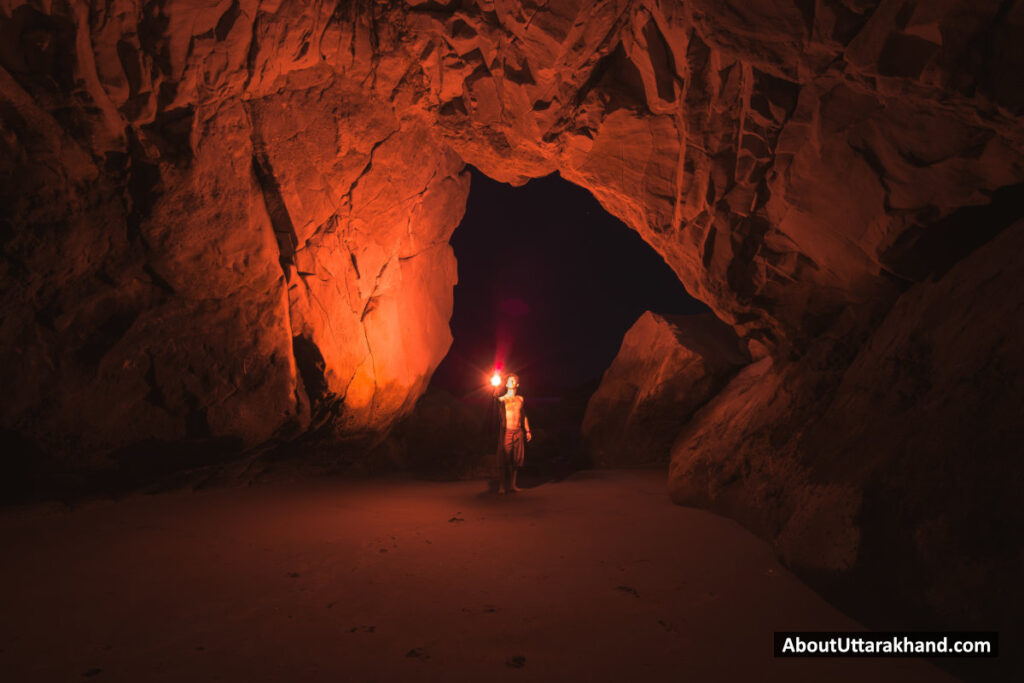
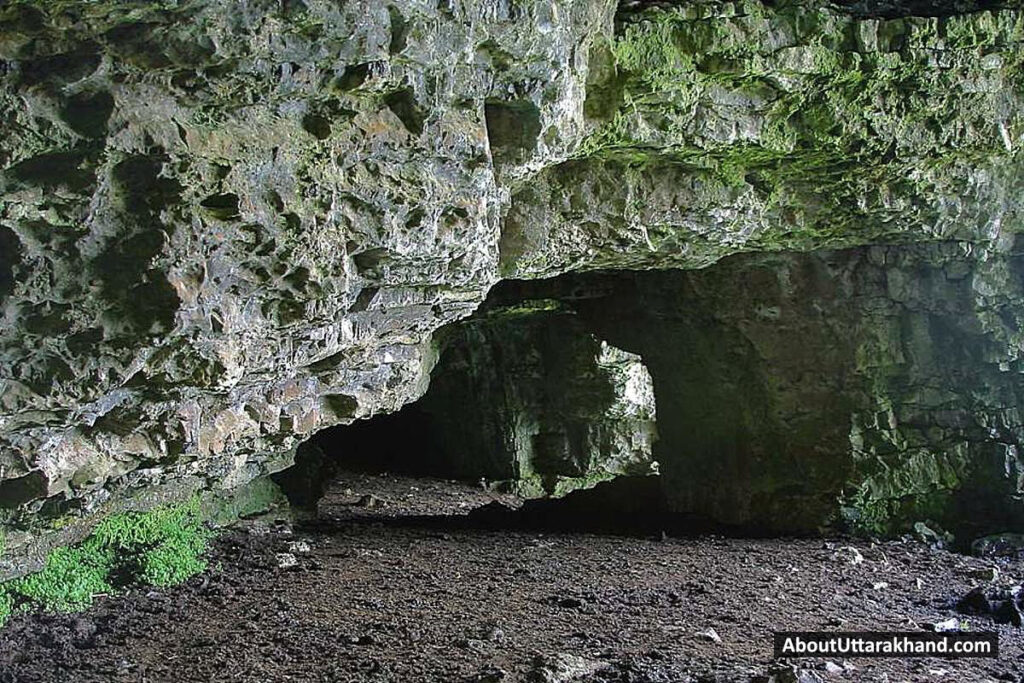
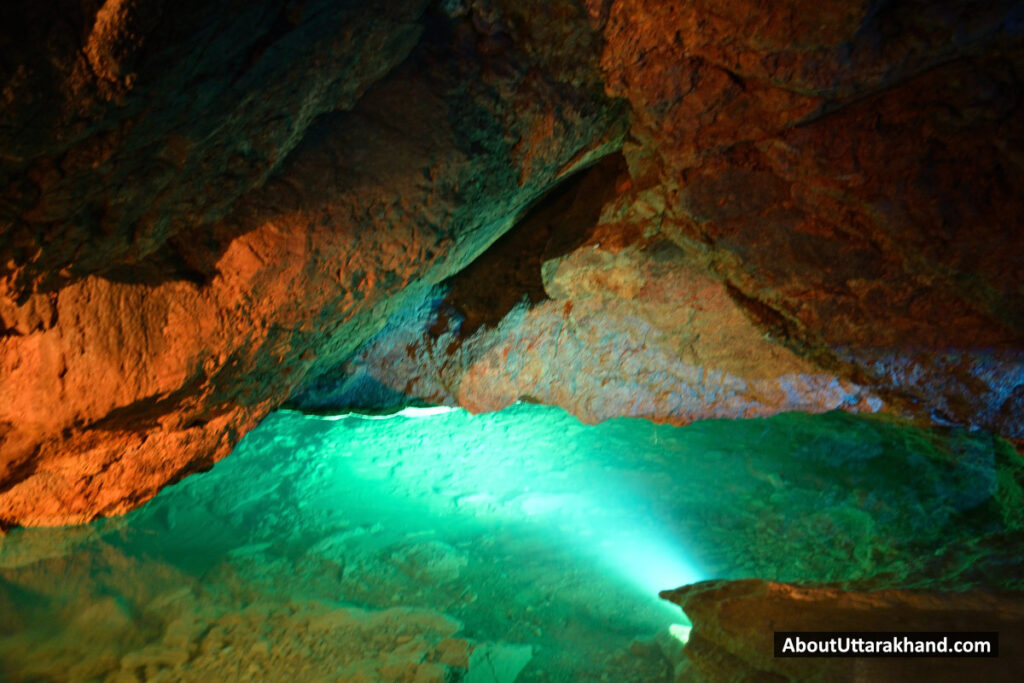
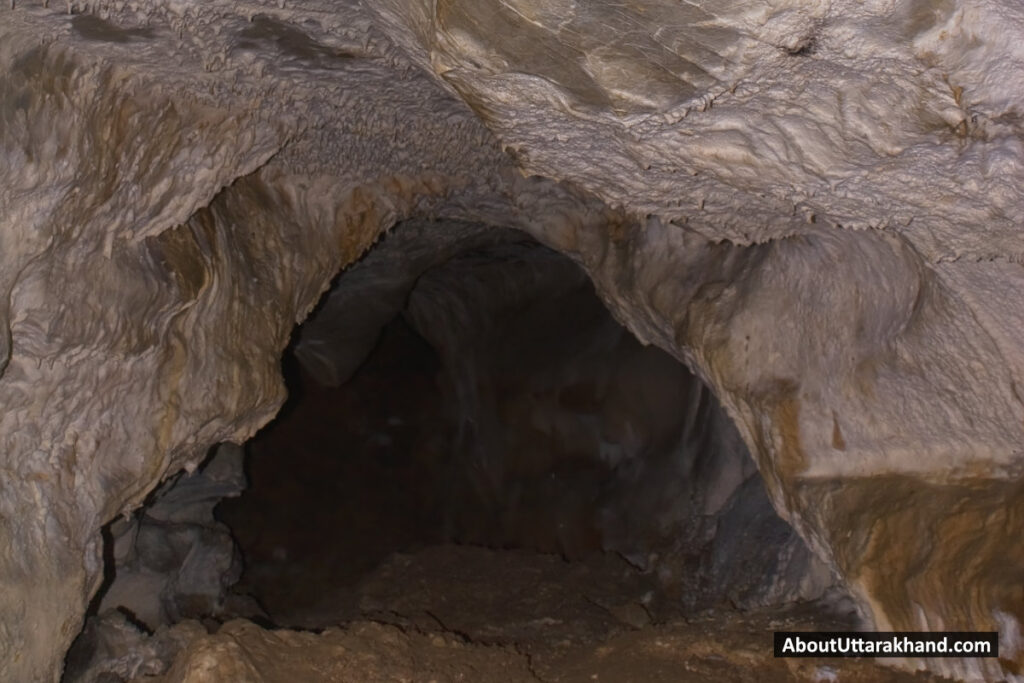
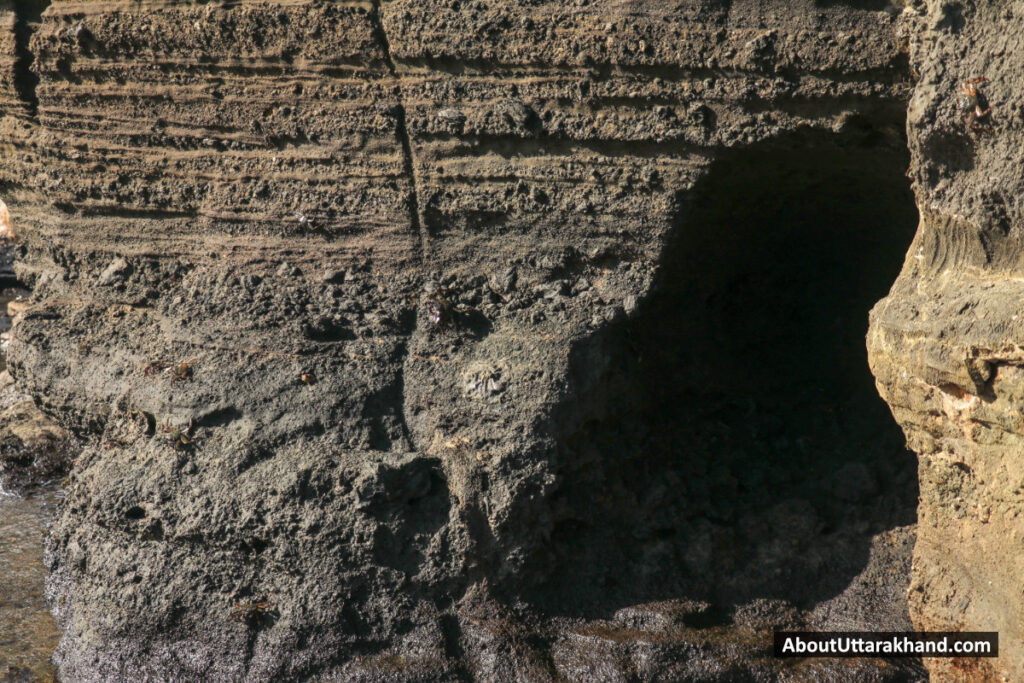
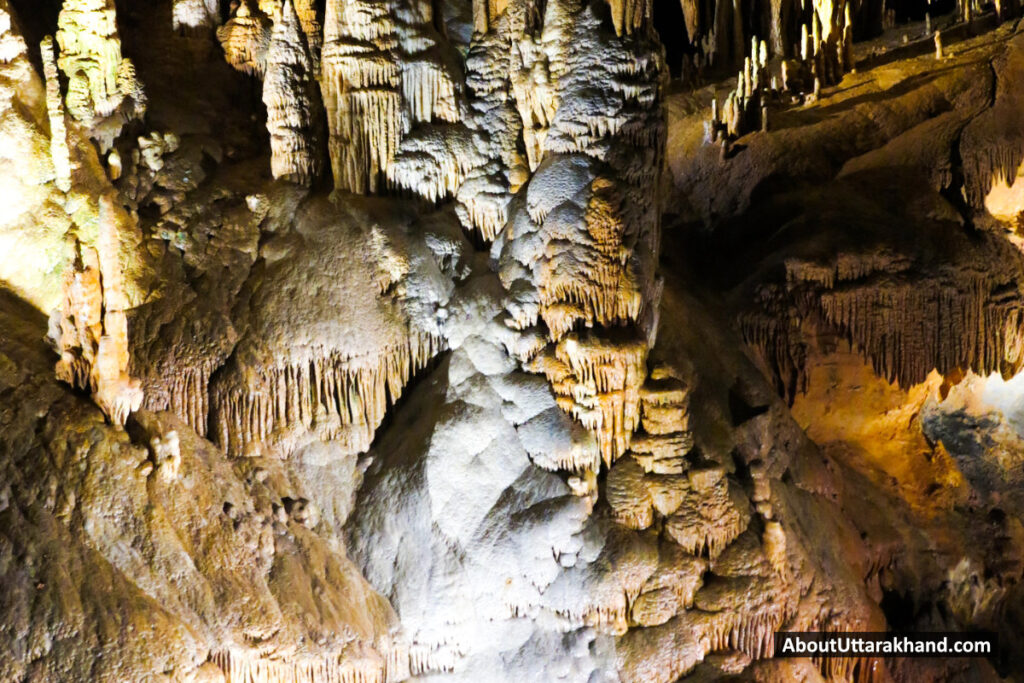

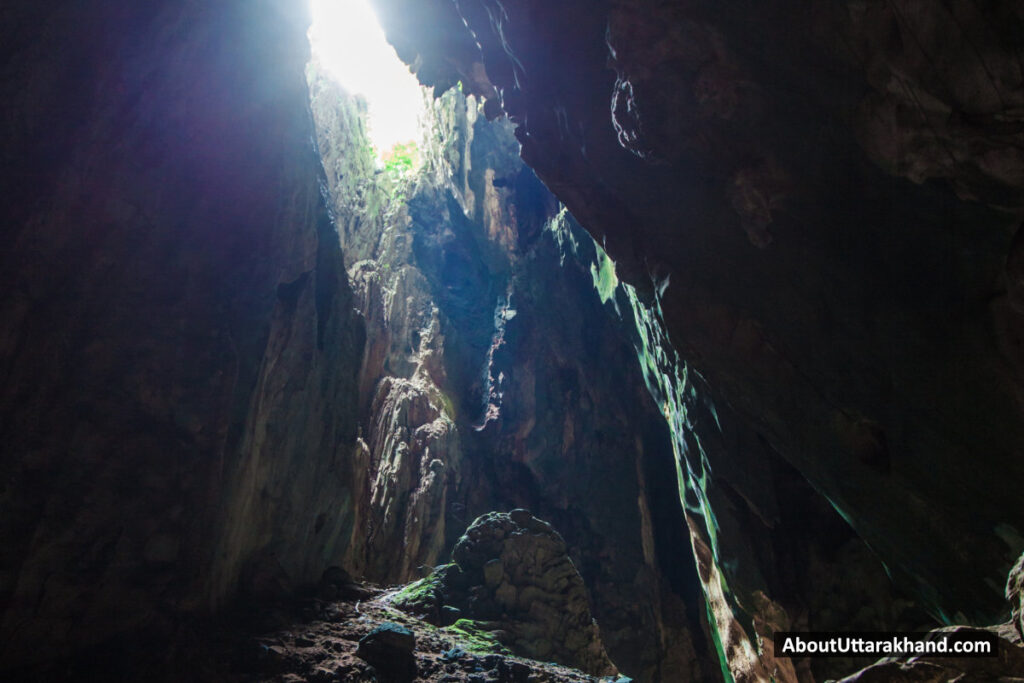
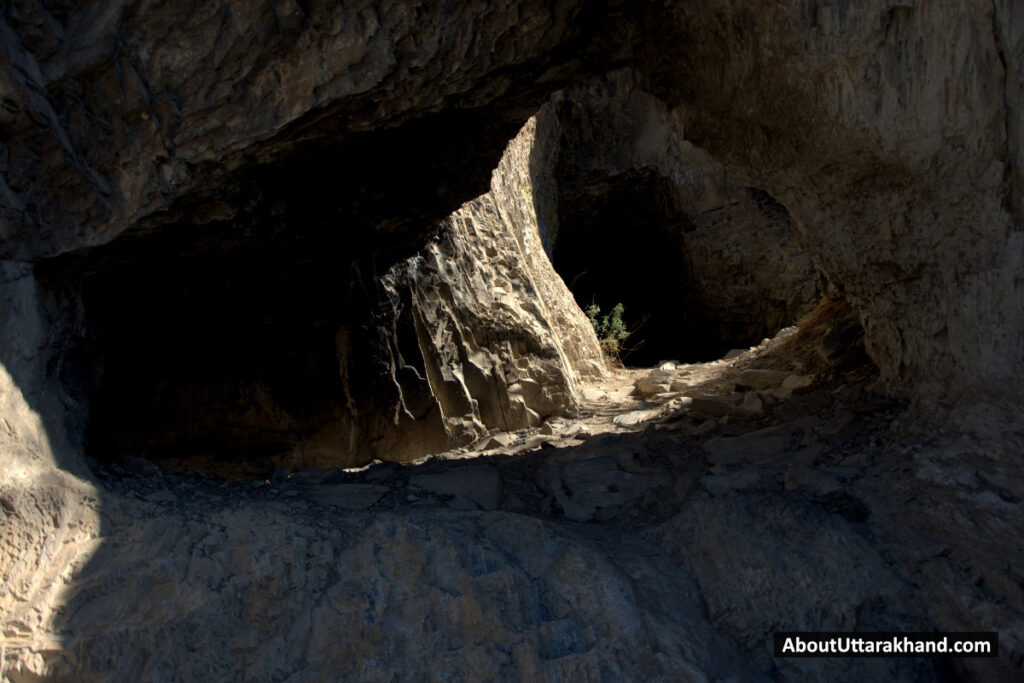

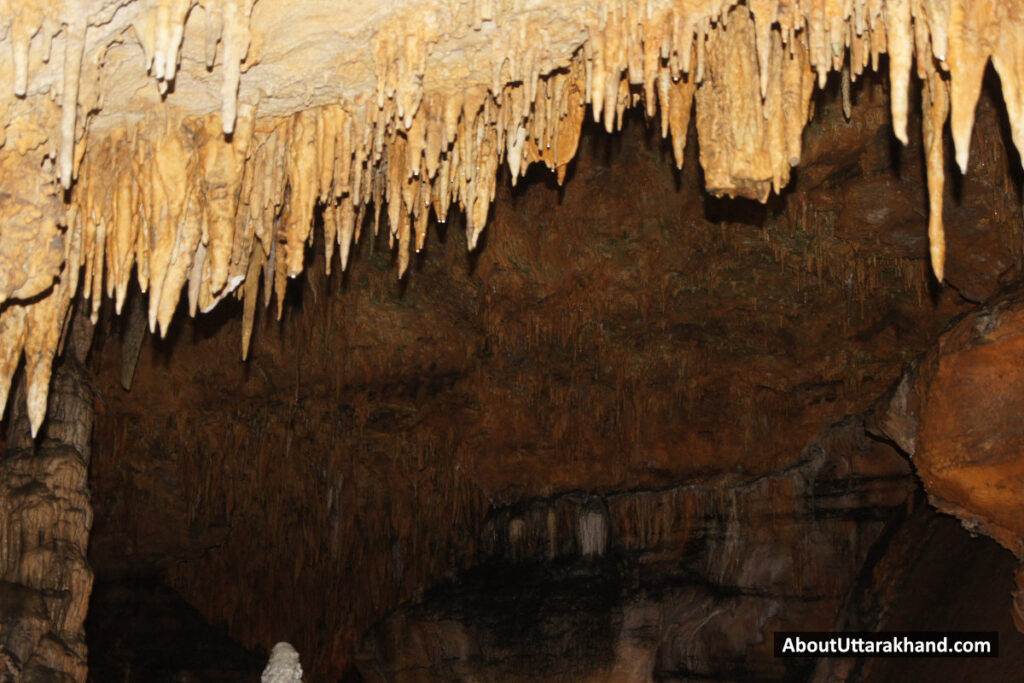
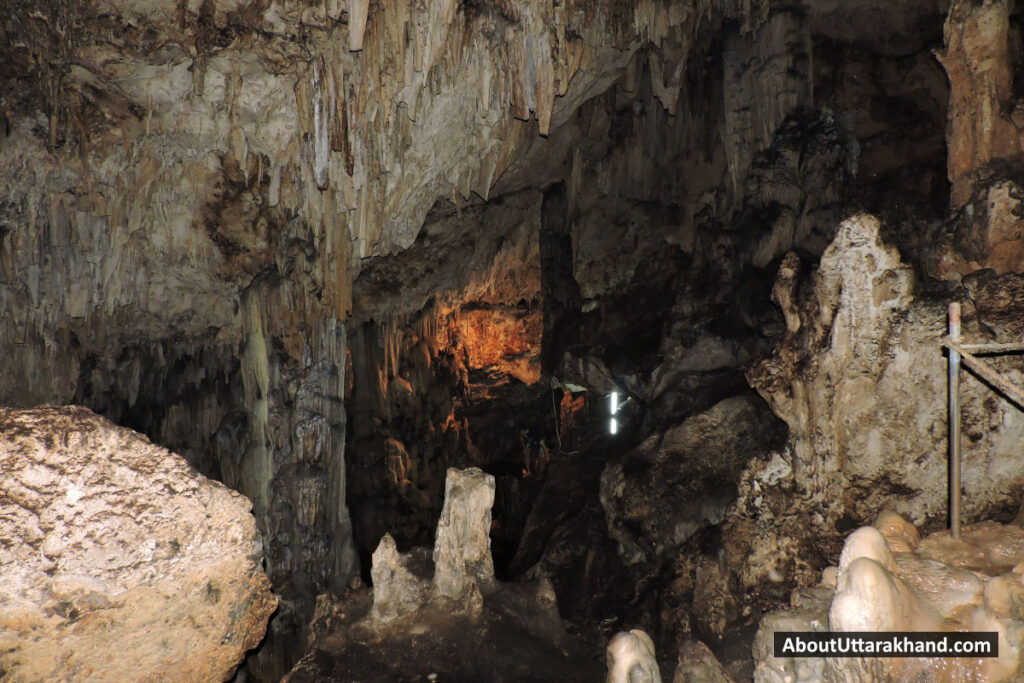
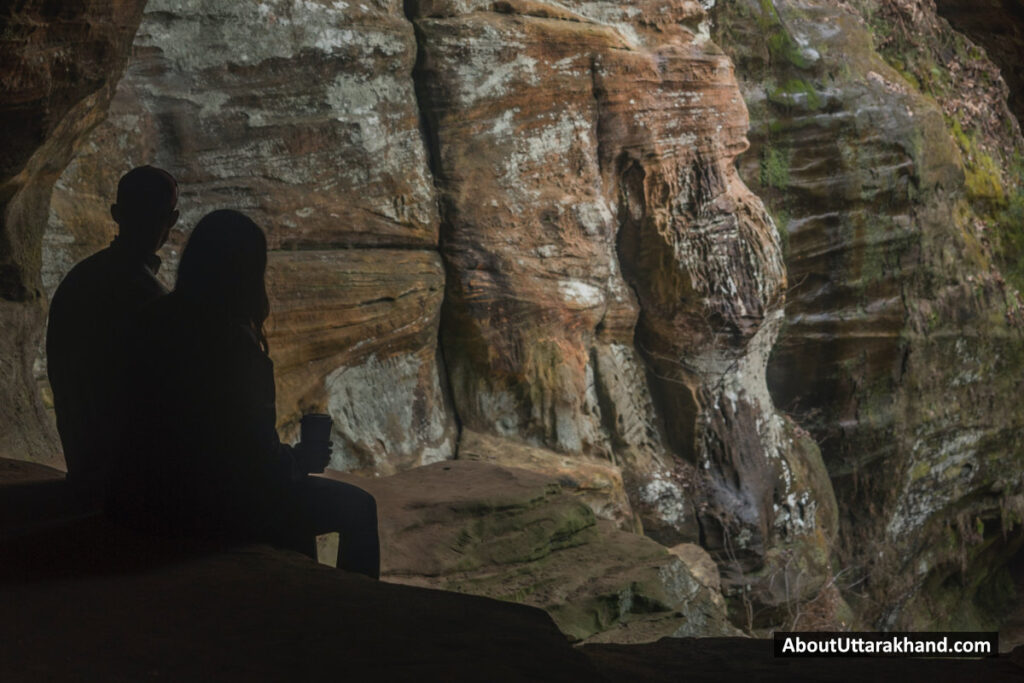
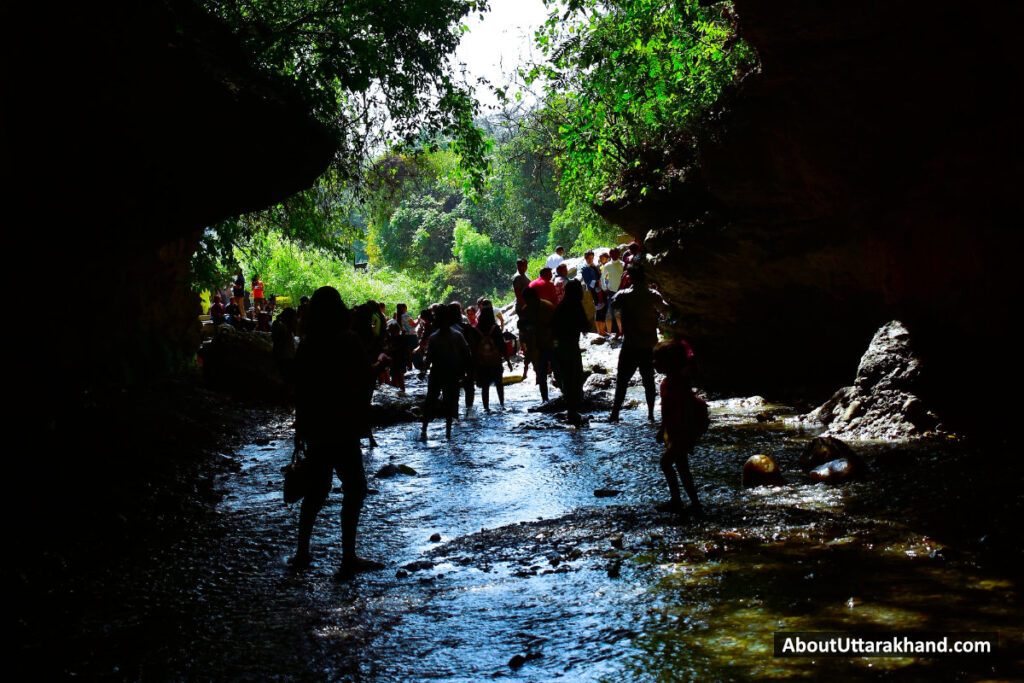
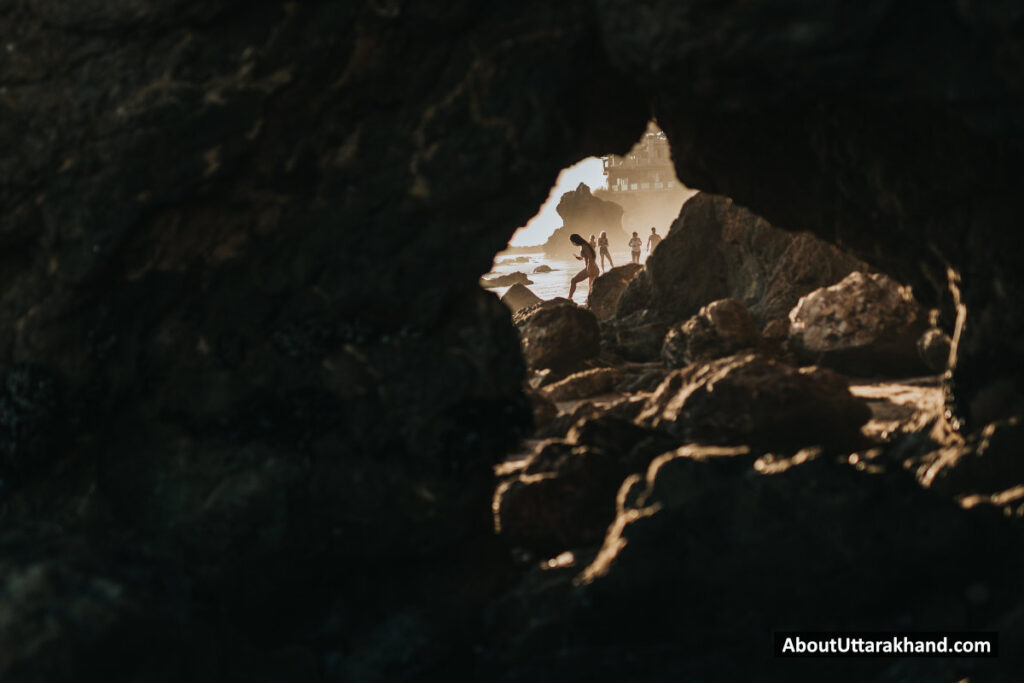
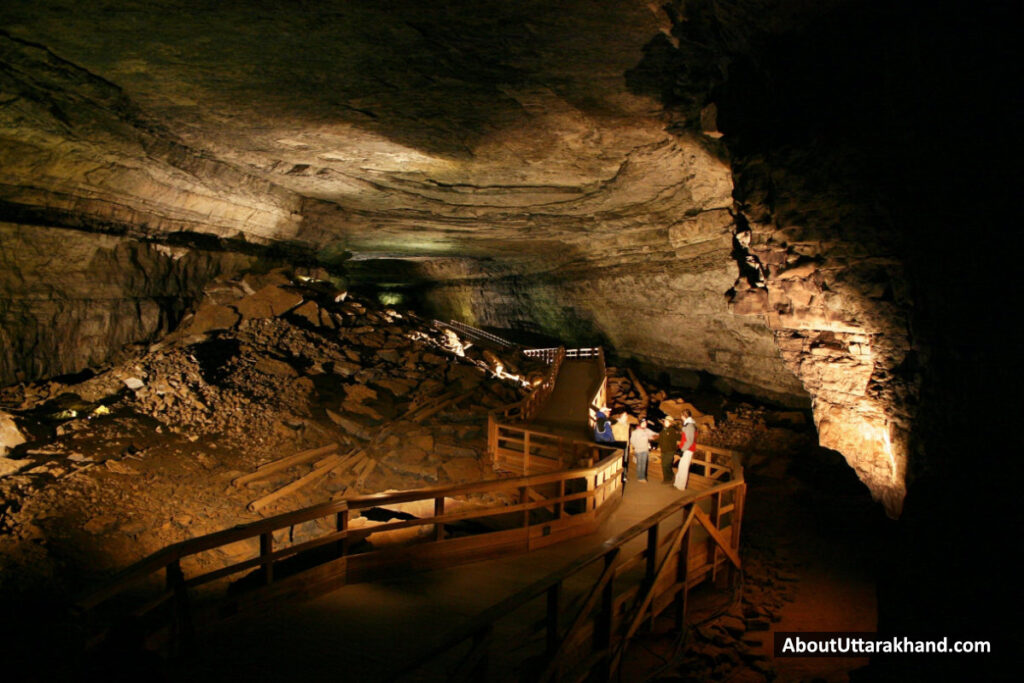

Belle Fable, keeps your trend ahead!
Gaumukh Glacier
The stunning Gaumukh Glacier, in the Uttarkashi region of Uttarakhand, India, is situated close to Gangotri and framed by the towering Garhwal Himalayas. Glaciers like this one attract tourists, hikers, and nature lovers from all over the globe because of the deep religious significance they have for Hindus as the headwaters of the holy Ganges River. The ascent to Gaumukh is an adventure in body and spirit, providing an opportunity to commune with the holy and the natural world.
Nandhaur Wildlife Sanctuary
The Nandhaur Wildlife Sanctuary is a haven for wildlife and stunning scenery, set in the tranquil hills of Uttarakhand. This sanctuary, in the Nainital District close to Haldwani, is a paradise for people who appreciate nature and animals. Its varied habitats, which include grasslands, ponds, and thick forests, have earned it recognition across its 269 square kilometers of territory.
Sonanadi Wildlife Sanctuary
The Sonanadi Wildlife Sanctuary invites animal lovers and nature lovers to come and enjoy the quiet beauty of Uttarakhand's serene surroundings. Hidden in the Nainital District, not far from Nainital, lies a refuge that begs to be discovered. Its varied wildlife and flora make this area, which covers around 301.18 square kilometers, a popular destination for ecotourists and those interested in biodiversity.
Binsar Wildlife Sanctuary
The Binsar Wildlife Sanctuary is a haven for wildlife and a monument to Uttarakhand's rich biodiversity, is situated in the picturesque Kumaon Himalayas. Nature lovers and wildlife aficionados will find this refuge, situated near Almora in the Almora District, to be a paradise. Covering about 47.04 square kilometers, it is famous for its verdant forests, varied fauna, and breathtaking views of the Himalayan mountains in the distance.
Tawaghat Wildlife Sanctuary
The Tawaghat Wildlife Sanctuary is a haven for adventurers and ecotourists, tucked away in the foothills of the towering Himalayas. This hidden gem of a sanctuary is located near Dharchula in Uttarakhand's Pithoragarh District. Despite its relatively tiny size (around 70 square km), this animal sanctuary is just as magical as any other.
Chilla Wildlife Sanctuary
.The Chilla Wildlife Sanctuary, located on the banks of the pure Ganges River, is a living monument to the beauty and variety of Uttarakhand's natural landscape. This sanctuary is a paradise for anyone who love nature and wildlife; it is located in the Pauri Garhwal District, close to Rishikesh. Covering over 249 square kilometers, it is a major wildlife sanctuary in the state that provides a peaceful haven amidst the majestic Himalayas.



